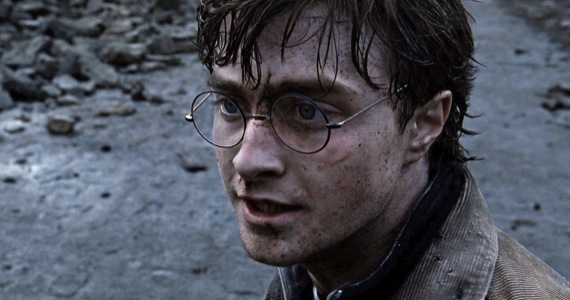Recommended reading for July 15: Harry Potter and more
This week’s top three media stories could rightly be termed the Good, the Bad and the Ugly.
The Good is the last Harry Potter movie opened today, finally. It’s been 14 years since the first book about the boy wizard was published, and 10 years since the first movie. Millions of kids have grown up with both – including my three – which is why we’ll make seeing the last movie a family affair.
Harry Potter has been very, very good to this blog. The single most popular post I’ve ever written was on J.K. Rowling’s writing style. Even though I originally wrote it in summer of 2009 and updated it last November when “Harry Potter and the Deathly Hallows Part 1” came out, it still gets more page views that almost any other post on my blog. So thanks, Harry Potter fans, for helping make WordCount a success.
In Content Aggregation, How Much Copying is Too Much?
The Bad in the media business news this week involves the brouhaha that arose after Huffington Post indefinitely suspended contributor Amy Lee for a lengthy summary of an AdAge story that cribbed too much of the original and buried the link to the original. While HuffPo editors apologized for the overly-aggressive aggregation, pundits called Lee a scapegoat for a common practice on the news site of repackaging other news organization’s work.
The incident has led to a discussion of what constitutes fair use in the age of content curation. When your job is to aggregate news from other sources, how much is too much? How can you tell if someone’s gone too far?
Since some of the blogging I do falls into the category of content aggregation, I brought it up with my editor this week. Her advice: Take “just a snippet,” always include an attribution and always link back to the original.
“HuffPost is careful to adhere to copyright law and fair use guidelines,” a HuffPo spokesperson said in a statement, according to a New York Post story on the matter. “Our editorial approach is that when excerpting a story, we should only offer enough of it to give readers a sense of the story and the ability to comment on it, without removing the incentive to go to the original source to read more.”
Do they follow their own advice? You be the judge.
If you aggregate content for your own blog or paid blogging gigs, what do you do?
News of the World Scandal Hurts Other Murdoch Businesses
Finally to The Ugly. The fallout from the News of the World phone hacking scandal keeps coming. To date, it’s stopped NOTW owner Rupert Murdoch’s bid to buy out the remaining shares of a British satellite TV company he didn’t already own; led some former top NOTW editors to resign and others to be arrested; and former Wall Street Journal shareholders to say they’d never have sold to Murdoch had they known then what they do now.
When original allegations of phone tampering surfaced in 2007, News of the World officials called it an isolated incident. But one reporter for the U.K.’s Guardian newspaper stuck with it. This week, NPR media correspondent David Folkenflik related how that persistence paid off in “Guardian Reporter Rocks Murdoch Empire.” The Guardian’s Nick Davies followed the phone hacking story for years before the public, and public officials, started taking an interest. “A blind man in a dark room could see that the official version of events didn’t make sense,” he tells Folkenflik.

still watching the Harry Potter series, excited as the first release of the series.
Harry Potter and the Deathly Hallows: Part 2 Hd trailers can be watched and download both 480p, 720 and 1080p